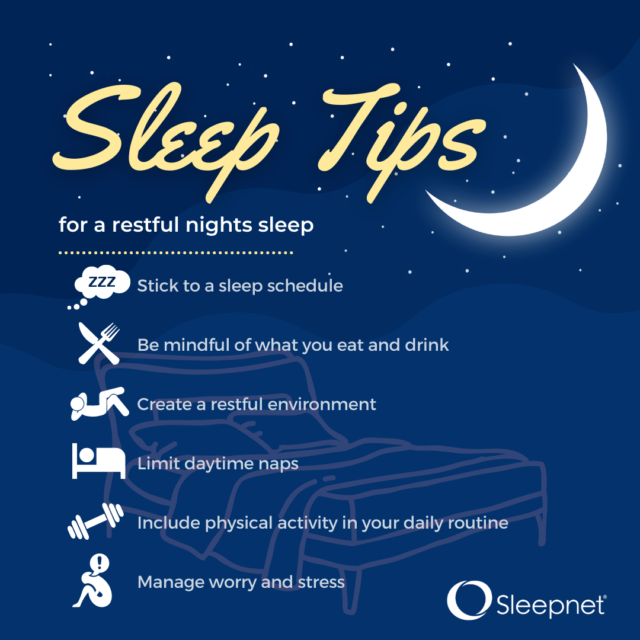- Create a Sleep-Inducing Environment
To achieve better sleep, an environment conducive to relaxation should be created. Dim lighting, a comfortable mattress, and pillows that provide adequate support should be used. Noise should be minimized, and a cool room temperature should be maintained. Exposure to screens emitting blue light should be reduced, as it interferes with the production of melatonin, the hormone responsible for sleep.
- Establish a Consistent Sleep Schedule
A consistent sleep schedule should be maintained by going to bed and waking up at the same time every day. The body’s internal clock, also known as the circadian rhythm, will be regulated this way, making it easier to fall asleep and wake up naturally. Even on weekends, the schedule should be followed to ensure that the body’s rhythm remains consistent.
- Practice Relaxation Techniques Before Bed
Relaxation techniques, such as deep breathing exercises, meditation, or gentle stretching, should be practiced before bed. These activities will help calm the mind and body, making it easier to drift into sleep. A few minutes should be dedicated to these techniques every night to create a bedtime ritual that signals to the body that it is time to sleep.
- Limit Exposure to Stimulants
The consumption of stimulants, such as caffeine and nicotine, should be limited, especially in the hours leading up to bedtime. These substances can interfere with the ability to fall asleep by keeping the mind and body alert. It is recommended that stimulants should be avoided at least four to six hours before bedtime to promote better sleep.
- Be Mindful of Food and Drink Intake
Heavy meals, spicy foods, and large quantities of liquids should be avoided close to bedtime. These can cause discomfort, indigestion, or frequent trips to the bathroom, all of which can disrupt sleep. A light snack, such as a small portion of fruit or yogurt, can be consumed if hunger is an issue, but large meals should be avoided.
- Incorporate Physical Activity into the Day
Regular physical activity should be incorporated into daily routines to improve sleep quality. Exercise has been shown to reduce stress and tire the body, making it easier to fall asleep. However, vigorous exercise should be avoided close to bedtime, as it can have a stimulating effect. Morning or afternoon workouts are ideal for promoting restful sleep.
- Manage Stress Levels
Stress management techniques should be practiced regularly to reduce the impact of daily worries on sleep. Journaling, talking to a friend, or engaging in a relaxing hobby can help clear the mind before bed. Stress can be a significant barrier to restful sleep, so addressing it during the day will lead to a more peaceful night.
- Limit Naps During the Day
Daytime naps should be limited to ensure that nighttime sleep is not negatively affected. If naps are necessary, they should be kept short (20-30 minutes) and taken early in the afternoon. Long or late naps can interfere with the body’s sleep drive, making it more difficult to fall asleep at night.
- Get Exposure to Natural Light
Natural light exposure should be increased, especially in the morning. Sunlight helps regulate the body’s circadian rhythm, making it easier to fall asleep at night. Time should be spent outdoors during daylight hours, or blinds should be opened to let in as much natural light as possible.
- Seek Professional Help if Necessary
If sleep problems persist despite following these tips, professional help should be sought. A healthcare provider or sleep specialist can be consulted to identify any underlying issues that may be affecting sleep. Conditions such as sleep apnea, insomnia, or restless leg syndrome may require medical intervention to ensure a restful night’s sleep.
Conclusion
By following these ten tips, better sleep can be achieved, leading to improved overall health and well-being. It should be remembered that sleep is a vital component of a healthy lifestyle, and it deserves the same attention as diet and exercise. A commitment to good sleep hygiene will be rewarded with restful nights and more energized days.










